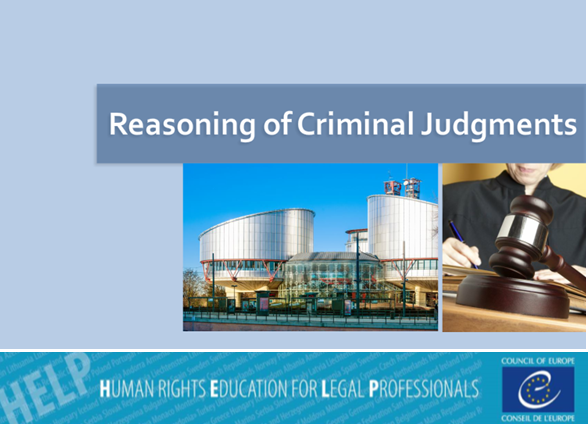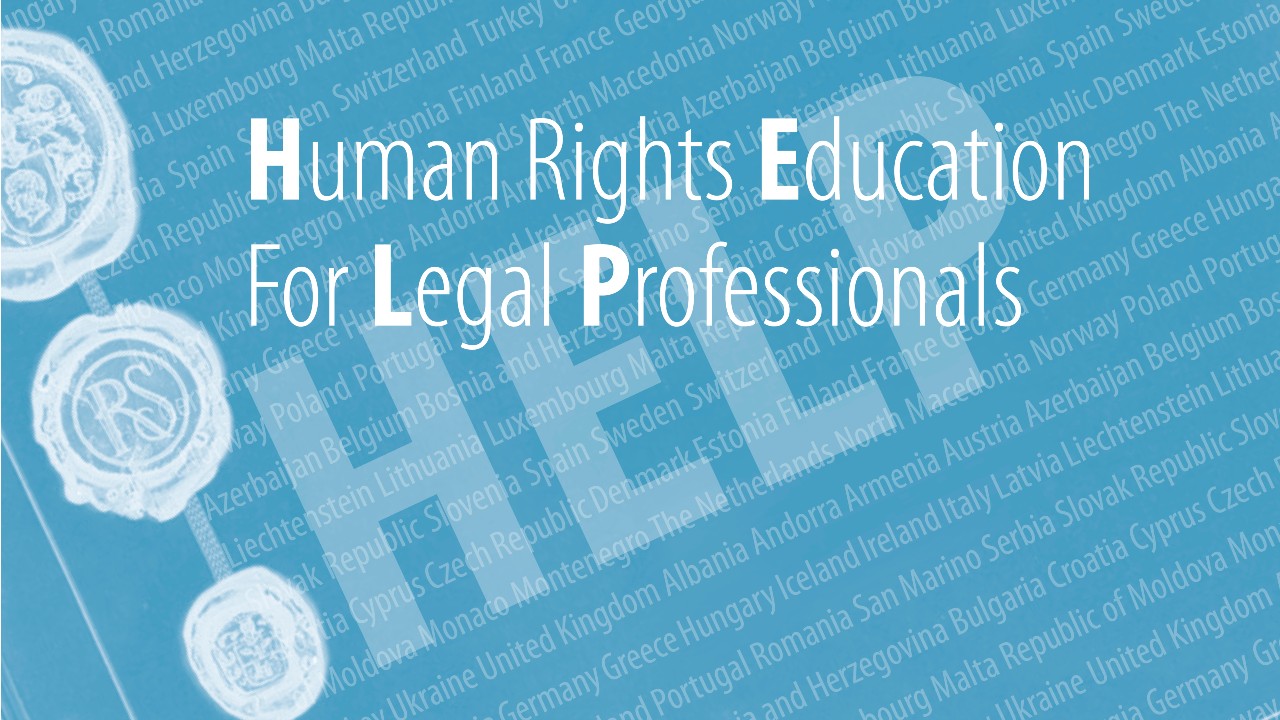The free HELP online course on Reasoning of criminal judgements explores the obligations of domestic courts’ under the European Convention on Human Rights (the ECHR) and the case-law of the European Court of Human Rights (the ECtHR) concerning the extent and content of the reasoning they provide when deciding domestic cases. It has been designed to address the needs of judges who, in the process of domestic adjudication, are required to refer to the case law of the ECtHR. The course provides an overview of the relevant case law developed under Articles 2, 3, 5, 6, 8 and 10 of the ECHR.
The course consists of seven substantive modules:
- Introduction (types of decisions of the ECtHR; the structure of ECtHR judgments; style of the ECtHR judgments; how to quote the ECtHR judgments; what is “the law” – formal and substantive definitions; requirements of the law)
- Right to a Fair Trial under Article 6 and the minimum requirements for the national courts’ reasoning (the duty to give reasons for the judgement; addressing the most important issues; unjustified changes of opinion; the drive towards adversarial trial and the requirements of adversarial trial)
- Reasoning of criminal judgements in the context of Articles 2 and 3 (meticulous justification; cases concerning Article 2 - Right to life; positive obligation to protect life; cases concerning Article 3 - Ill-treatment; other situations implying a need for effective investigation; principles of effectiveness: adequacy, impartiality and independence, promptness, public scrutiny; legal analysis by the ECtHR: tests used in cased of use of force by state agents and in cases of death of a person deprived of liberty; use of force in quelling a riot; racist attitudes; sentencing)
- Reasoning of criminal judgements in the context of Article 5 (the need to give reasoned judicial decisions under Article 5; incorporated control under Article 5; how does the ECtHR view judicial decisions under Article 5?; the obligations under Article 5 § 2 to give reasons for the arrest; the obligations under Article 5 § 3 to provide justification for the detention; the obligations under Article 5 § 4 to provide judicial review for the detention)
- Reasoning of criminal judgments in the context of Article 8 (which rights are protected under Article 8?; interference; proportionality test)
- Reasoning of criminal judgments in the context of Article 10 (general principles; structure of the reasoning in cases of freedom of expression; cases of defamation; cases of disclosure of information on private lives; cases of disclosure of information on on-going criminal investigations; cases of disclosure of confidential information; liability for comments by third parties)
- Reasoning of criminal judgments in the context of Article 6 and non-attendance (Article 6 Paragraph 3(d); good reason for the witnesses’ non-attendance (or good reason not to give evidence at the trial); reasoning of evidence - sole or decisive; reasoning whether there are sufficient counterbalancing factors; providing reasons for dismissing the defence request to call witnesses; latest case law of the ECtHR).
The course was pilot tested in Bosnia and Herzegovina in 2017. It is available in English, Montenegrin and Bosnian.
Click here to take the course now.





